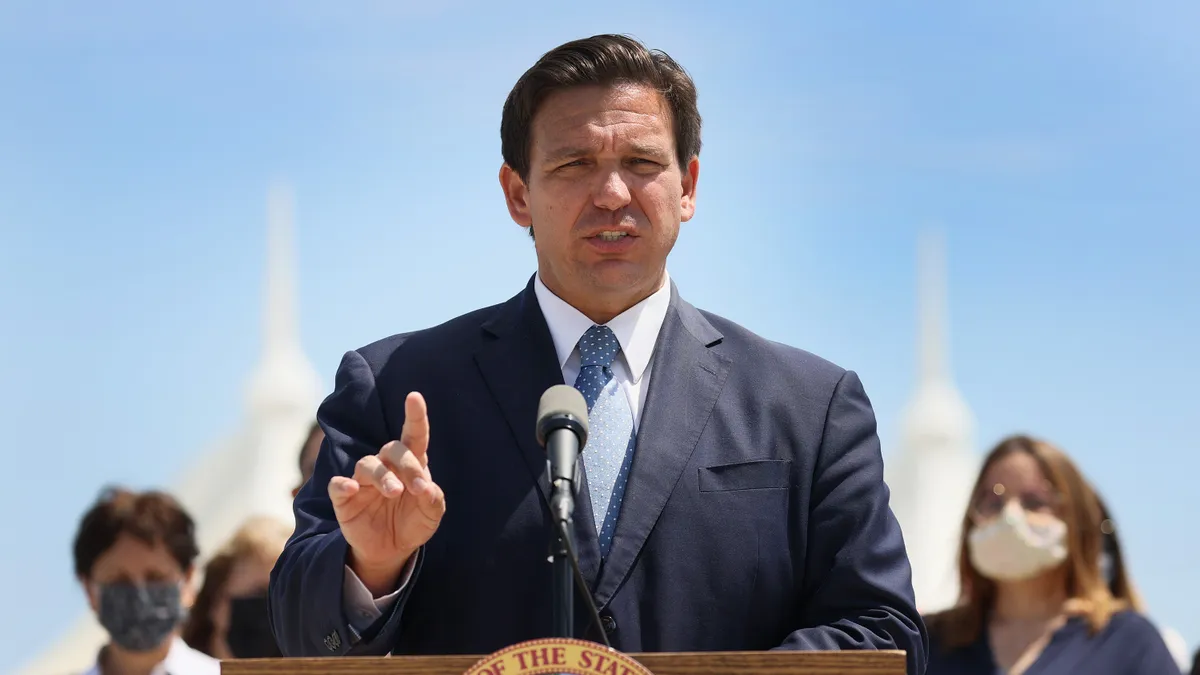Dive Brief:
-
A bill that Florida Gov. Ron DeSantis signed this week protects public and private colleges from lawsuits seeking refunds if they moved instruction online or limited on-campus activities during the pandemic.
-
The liability shield has narrow exceptions, including if a college acted in bad faith or kept information from students that caused harm.
-
Colleges nationwide were sued during the health crisis by students who wanted tuition refunds after their campuses shut down.
Dive Insight:
The new law, which took effect Thursday, provides colleges a wide range of protections for actions such as shifting instruction online, changing or closing most campus facilities, or pausing student activities during the pandemic.
It comes after the state's colleges faced lawsuits. One class-action case brought last year against a dozen public institutions sought refunds for fees for on-campus services that weren't delivered, though the plaintiffs withdrew the lawsuit earlier this year. And cases against Florida State University and the University of Florida were brought by students who argued they paid for in-person instruction but instead received virtual instruction, though the latter was also withdrawn.
Similar lawsuits were filed against colleges across the country. Courts have largely rejected these challenges, though a few have moved forward.
One against Rensselaer Polytechnic Institute, in New York, is ongoing. A federal court also declined to dismiss a lawsuit against Quinnipiac University in Connecticut.
Legal experts theorized early in the pandemic that courts would be reluctant to rule on the value of online education, an area in which they have little experience.
Other states have proposed liability protections for colleges, and at least one, in North Carolina, has passed. Federal lawmakers also previously debated whether to include a liability shield in coronavirus spending packages.













